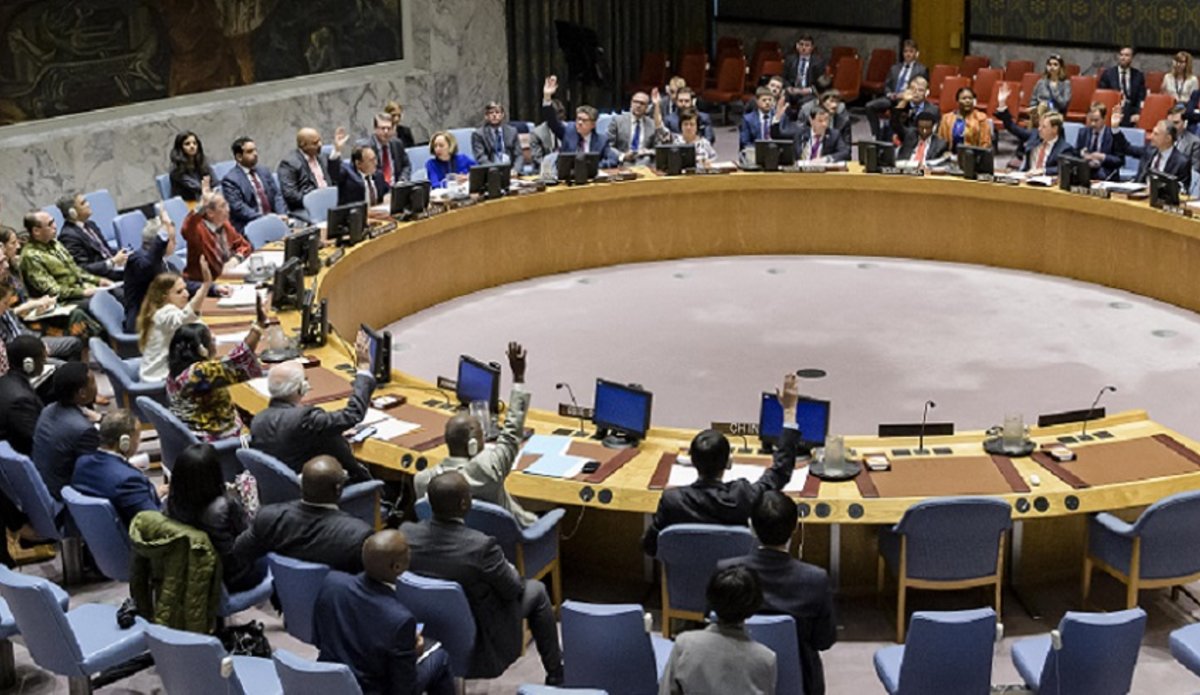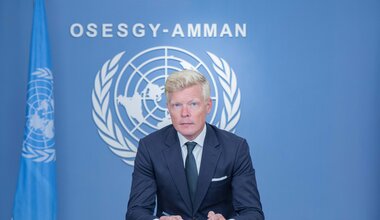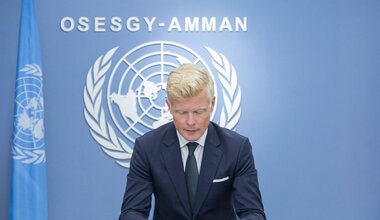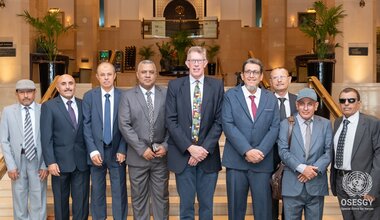Security Council Press Statement on Yemen
The Members of the Security Council underlined their full support for Special Envoy of the Secretary-General for Yemen (the Special Envoy), Martin Griffiths, and called on the parties to engage constructively and continuously with the Special Envoy. The members commended the efforts of the Special Envoy to support the parties to implement the Stockholm Agreement and to promote a political solution in Yemen.
The members of the Security Council noted positively the initial progress achieved by the parties towards phase one of the redeployment of forces in Hodeidah, as reported by the Special Envoy on 15 May 2019. They urged the parties to take the necessary next steps, in accordance with the agreed concept of operations (CONOPS), for the full implementation of the Hodeidah Agreement.
The members of the Security Council reiterated their call on the parties to continue broader implementation of the Stockholm Agreement, including full adherence to the ceasefire in Hodeidah governorate, as well as the finalisation of arrangements for the Prisoner Exchange Agreement and the statement of understanding on Taiz.
The members of the Security Council underlined the need for the UN Mission in support of the Hodeidah Agreement (UNMHA) to be fully deployed as swiftly as possible and reiterated their call on the parties, as set out in resolution 2452 (2019), to ensure the unhindered and expeditious movement into and within Yemen of UNMHA personnel and equipment. Noting that a substantial number of entry permits were waiting to be issued for access to Houthi-controlled areas, they called on the parties to give all necessary support and assistance to UNMHA. They further encouraged those Member States in a position to do so to deploy monitors to UNMHA.
The members of the Security Council expressed concern at re-escalating violence across parts of Yemen and at the loss of life and injuries caused by the conflict, and recalled their previous demands that all parties take all possible steps to ensure the protection of civilians, particularly children, and critical civilian infrastructure, and to comply with their obligations under international humanitarian law.
The members of the Security Council condemned the attacks on oil pumping facilities in the cities of Al Dawadmi and Afif in Riyadh Province, Kingdom of Saudi Arabia on 14 May, for which the Houthis claimed responsibility. They underlined that such attacks posed a serious national security threat to the Kingdom of Saudi Arabia, as well as a wider threat to regional security, and also threaten to undermine the UN-led political process.
The members of the Security Council expressed deep concern at the gravity of the humanitarian situation and its continued deterioration since December 2018, including a serious resurgence of cholera with more than 364,000 suspected cases since the start of 2019 and 18% more Yemenis classified as food insecure this year (20 million people, 65% of the population). They expressed concern at continued access restrictions within Yemen and reiterated their call on the parties to remove bureaucratic impediments to access for humanitarian personnel and flows of humanitarian supplies, including food and fuel, and to ensure the effective and sustained functioning of all of Yemen’s ports and onward road access.
The members of the Security Council also noted the need to increase the pace and scale of the humanitarian response, and expressed concern at reports that the UN is running out of money for essential life-saving activities. They further noted that an important measure in stemming the cholera outbreak and preventing famine in 2018 was the early disbursement of agreed pledges to the United Nations Office for the Co-ordination of Humanitarian Affairs, and urged donors to promptly fulfil the pledges they have already made to the UN.
The members of the Security Council recognised the efforts of the Government of Yemen to stabilise the Yemeni Riyal, establish a budget and pay some public sector salaries and pension payments across the country. They encouraged both parties to continue to work with the UN Special Envoy to strengthen the economy and the functioning of the Central Bank of Yemen, and to deliver the regular payment of public sector salaries across the country.
The members of the Security Council called on all parties to engage constructively with the Special Envoy in fulfilling their obligations agreed in Stockholm, and welcomed the Special Envoy’s intention to continue work with the parties to pave the way for the resumption of formal negotiations. They called on the parties to engage constructively to reach a Yemeni-led comprehensive political settlement as set out in resolution 2216 (2015) and other relevant Security Council resolutions and presidential statements, as well as by the Gulf Cooperation Council Initiative and its Implementation Mechanism and the outcomes of the National Dialogue Conference.
Recognising the crucial peacebuilding role played by women in Yemen, the members of the Security Council reiterated the importance of the full, effective and meaningful participation of women as well as the meaningful engagement of youth in the political process. They called on the Government of Yemen and the Houthis to increase the participation of women in their delegations to 30%, if necessary by adding additional members to their delegations.
The members of the Security Council reaffirmed its strong commitment to the unity, sovereignty, independence and territorial integrity of Yemen.
10 June 2019
 UN
UN







